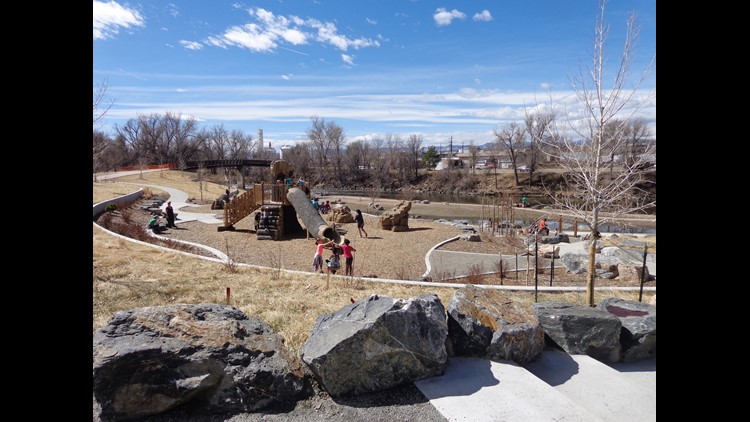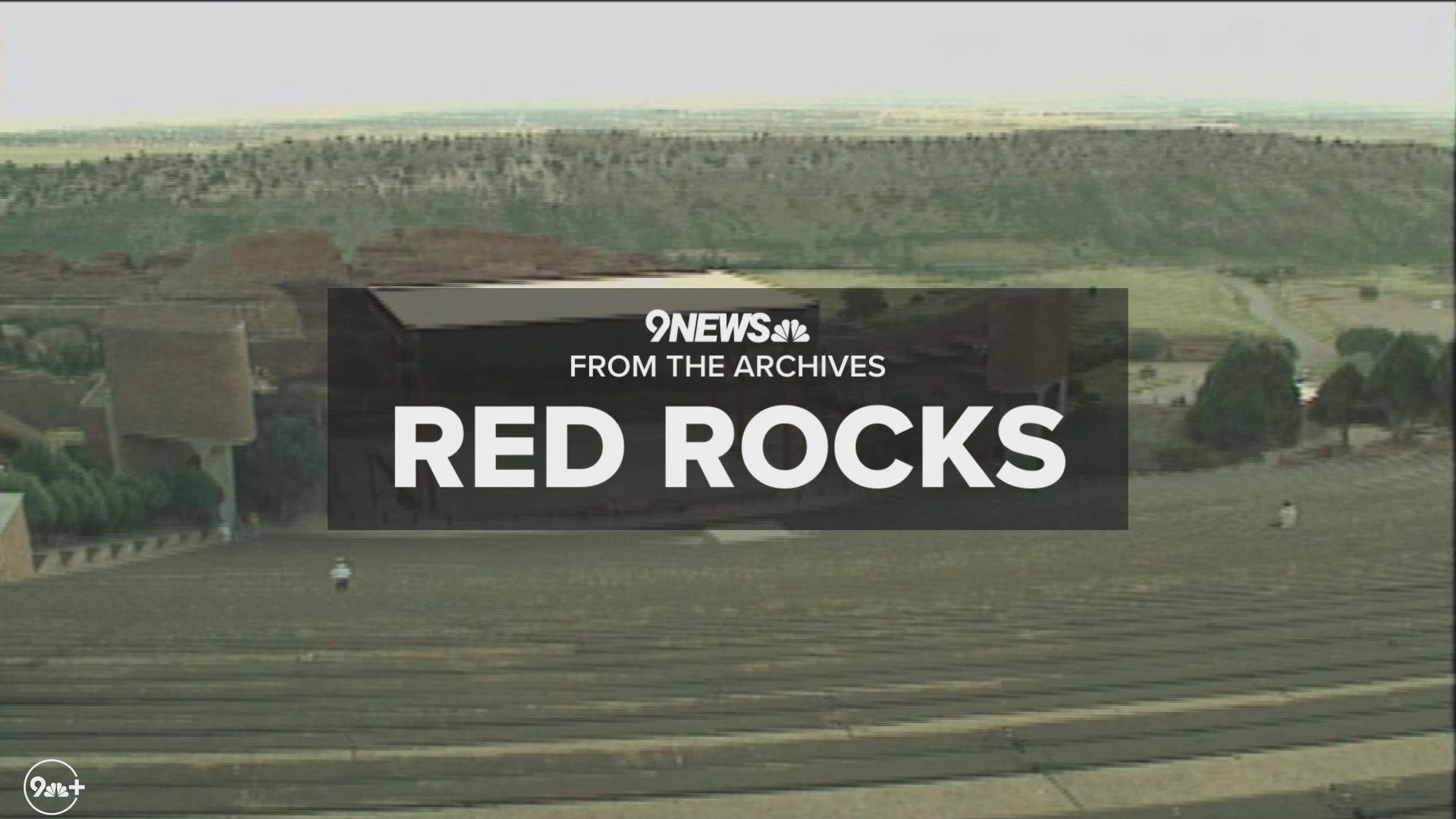Overland was once considered a rundown area with not a lot to offer residents. Now, it's in the midst of a renaissance, as once-empty store fronts along South Broadway fill out with dispensaries, breweries, art galleries and restaurants.
The Denver neighborhood just north of Englewood is bounded by West Mississippi Avenue to the north, South Broadway to the east, West Yale Avenue to the south and the South Platte River to the west.
The median home price for Overland is about $397,000, according to real estate website Trulia.com. Rents for all-size properties stand at a median rate of $1,800 a month.
Take a photo tour of Overland Friday on the 9NEWS Instagram.
Much of the western portion of the neighborhood is taken up by the Overland Park Golf Course, "the oldest running course west of the Mississippi," according to the city's website. The 18-hole, regulation golf course has it all — a clubhouse, driving range and even miniature golf right next door.
Along the edge of the golf course is the South Platte River trail, well-used by local runners and cyclists (and for good reason — it's a beautiful area, particularly in the warm seasons when all the shrubbery and trees are fully grown).
Overland is also home to the first settlement in what is now Denver.
Montana City, Denver
In 1858 a small group of hopeful miners arrived in what would eventually become Denver. They settled along the South Platte River just south of what is now Evans Avenue. At the time, the area was still part of the Kansas territory.

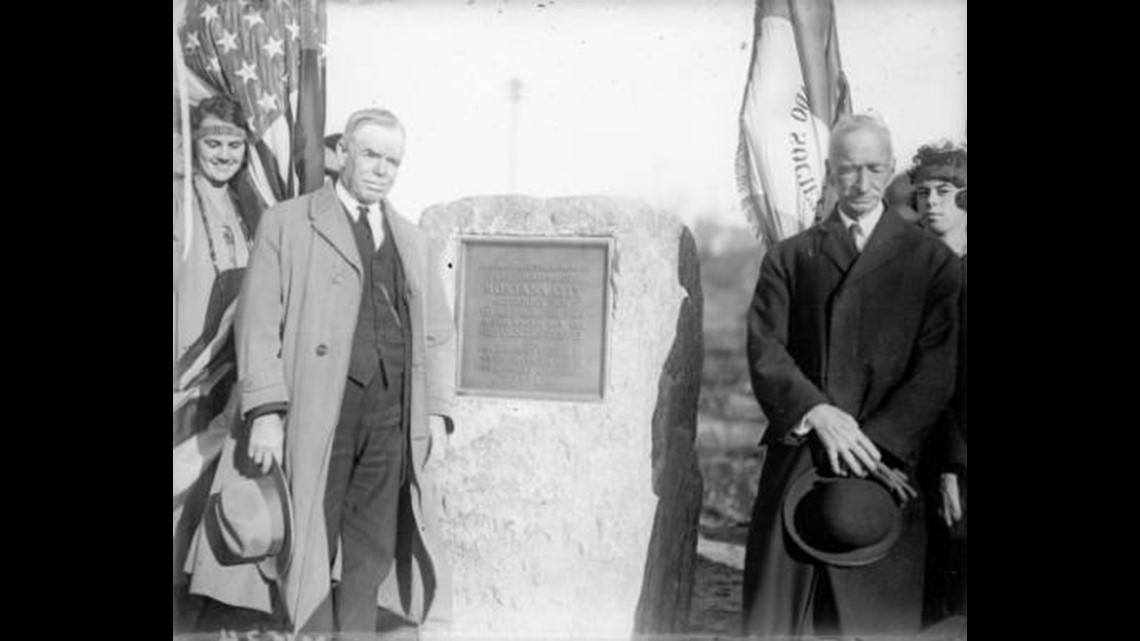
A small row of cabins was built, and the prospectors began panning in the river. But they were not having much, if any, luck.
Only a few months later a second group of gold-seekers arrived in the area. This group chose an area further downstream and called their settlement Auraria.
Gold was discovered at the Auraria site and the rush was officially on. Montana City was abandoned as the miners there left for the more successful camp.
Today, the location of that first settlement is in Overland’s beautiful Grant-Frontier Park. It’s remembered by a small area with part of a replica cabin, wagon and ‘frontier-style’ playground.

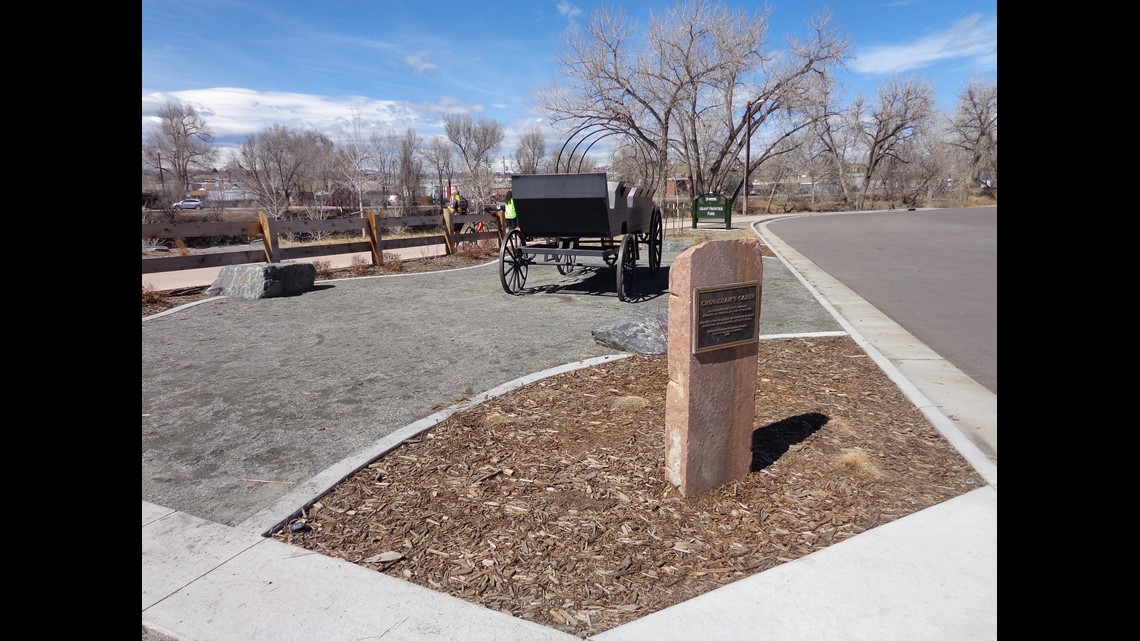
The non-profit Greenway Foundation, which was founded to help improve and maintain the South Platte River, and the Four Mile Historic Center also occasionally host ‘Pioneering on the Platte’ at the park. The event celebrates the history of Montana City with costumes, artifacts, gold panning instructions and other demonstrations.
Overland Park
Shortly after the first settlers left Montana City for their chance at gold, a different homesteader came to Overland.
Rufus Clark arrived in 1859 and began a farm. Another farm popped up just south of his shortly after.
In 1883, both farms were sold to the Denver Circle Railroad which used the land to build a race track, originally called Jewell Park.

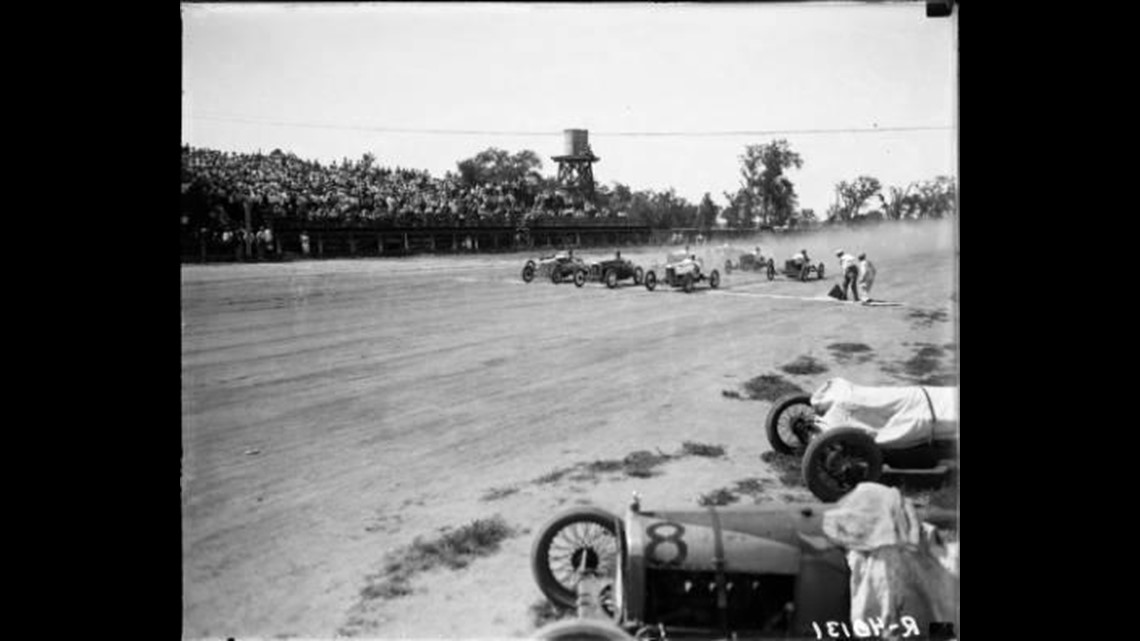
But that name would not last long. Four years later, a small group in Denver was looking for a site to build a country club. They bought out the race track and renamed it Overland Park.
As part of the country club, they also built a nine-hole golf course around the track, the first in the city. The Overland Country Club course opened in 1895.
The country club moved to its current location in Cherry Creek in 1901 but that was not the end for Overland Park. The city and county of Denver bought the land in 1919 and began renting out the race track. A ‘motor camp’ with campsites, showers, a restaurant, store, laundry room and even a soda fountain was established.
The golf course was renamed and eventually expanded to 18 holes in 1957.
Gates Rubber
The Gates Rubber Company came to Denver in 1911 when Charles Gates Sr. bought a tire and leather company in the Overland neighborhood.
They started with leather tires called ‘durable tread’ that were advertised to last for ‘5000 miles without puncture.’ From there they began manufacturing halters, tire covers and eventually garden hoses.

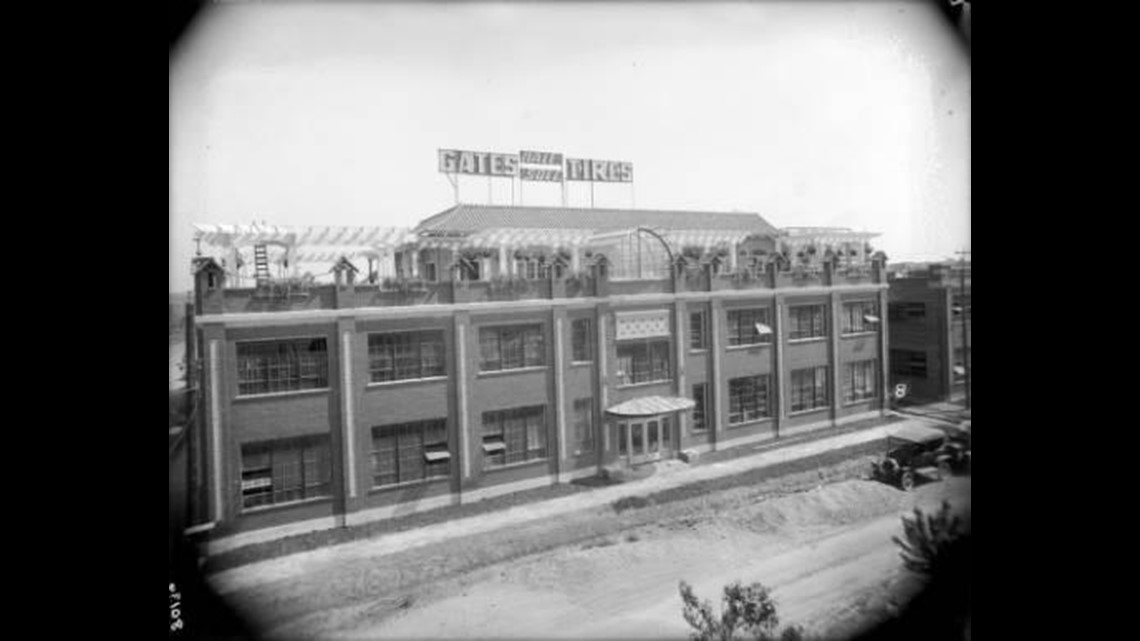
By 1922 the company had already expanded from its one small building to a 25-square block complex consisting of 30 interconnected buildings. They also had 11 distribution points around the country and warehouses in Chicago and San Francisco.
The company was also known for its massive range of employee benefits and programs. These included an employee commissary; an extensive recreation program that included teams in everything from basketball to archery and other employee outings including fishing, hiking and horse-back riding; roof gardens for employees to relax; a fire brigade to protect the plant; men’s and women’s social clubs; annual picnics held at places like Eldorado Springs, Elitch Gardens and Lakeside Amusement Park; an on-site medical clinic and credit union; and a massive Christmas party.

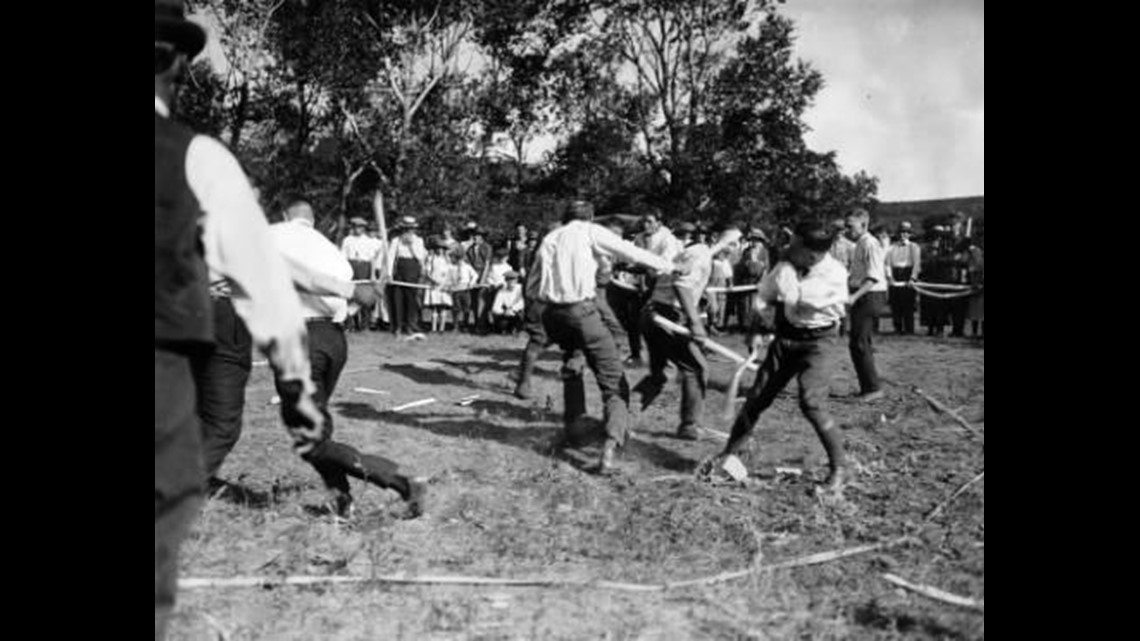
Gates expanded again in 1945 when the company bought a building the Ford Motor Company had used to manufacture Model T trucks prior to World War I. The new building would eventually become the corporate headquarters and administration building.
Over the next several decades the expansion continued. Gates built nearly 40 plants throughout the United States, Mexico, Europe, Brazil, Belgium and Venezuela. It became one of the largest manufacturers of automotive belts and hoses anywhere in the world.
The rubber plant on South Broadway shut down in 2001. Gates moved their headquarters into downtown Denver while manufacturing moved to facilities in the southeastern part of the country as well as to plants the company had in Asia and Europe.
Recent development in Overland
The long-shuttered Gates Rubber site was purchased by a developer in September 2014 and is the subject of development plans moving through the Denver City Council. The plant site will eventually be home to a transit-oriented apartment complex that sits across the street from Broadway Station, part of the Regional Transportation District's light rail system.
Many parts of the neighborhood have remained heavily industrial.
Tucked among the plants and factories is Declaration Brewing Co. (2030 S. Cherokee St.), a popular local brewery serving unique concoctions such as a Strawberry Wheat beer, Horchata-flavored spiced Mexican lager, Wildberry Saison and more.
Or, if you're more into whiskey, check out Laws Whiskey House (1420 S. Acoma St.), a craft distillery that "takes an obsessive, hands-on approach to every aspect of whiskey production," according to its website. The neighborhood is also home to Bear Creek, another local distillery.

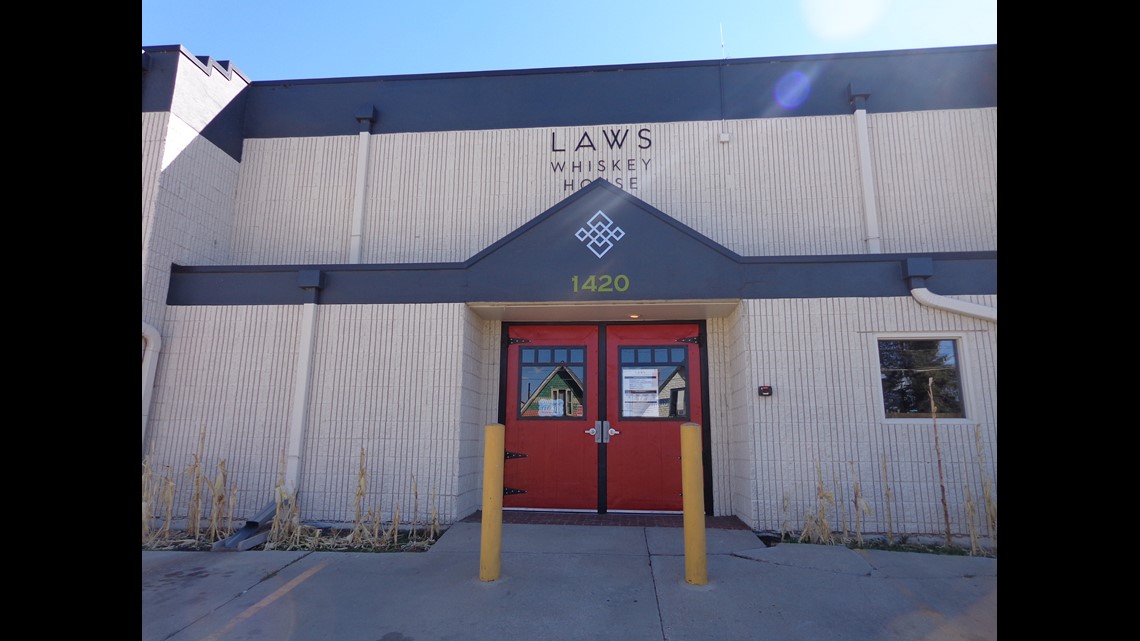
The biggest hub for shopping and dining in the Overland neighborhood can be found along South Broadway, often referred to as "Antique Row" because of the nearly 100 antique shops in a seven-block stretch.
That part of Broadway also includes a host of small, locally owned businesses like Purple Haze, Igor's T-Shirts, Victor Guitar, Sanyork Fair Trade and more. It's also home to several cannabis shops, like The King Room and The Herbal Center.
Those looking for food have no shortage of options. Turtle Boat — Colorado Poki Salads (4418, 2231 S. Broadway) is a tiny counter joint that serves up some big flavor and is decked out with local art.
Up the road is La Cour (1643 S. Broadway), a fine dining French restaurant and jazz venue. Breakfast King (1100 S. Santa Fe Dr.) is a neighborhood staple known for its you're-going-to-need-a-doggie-bag size dishes.

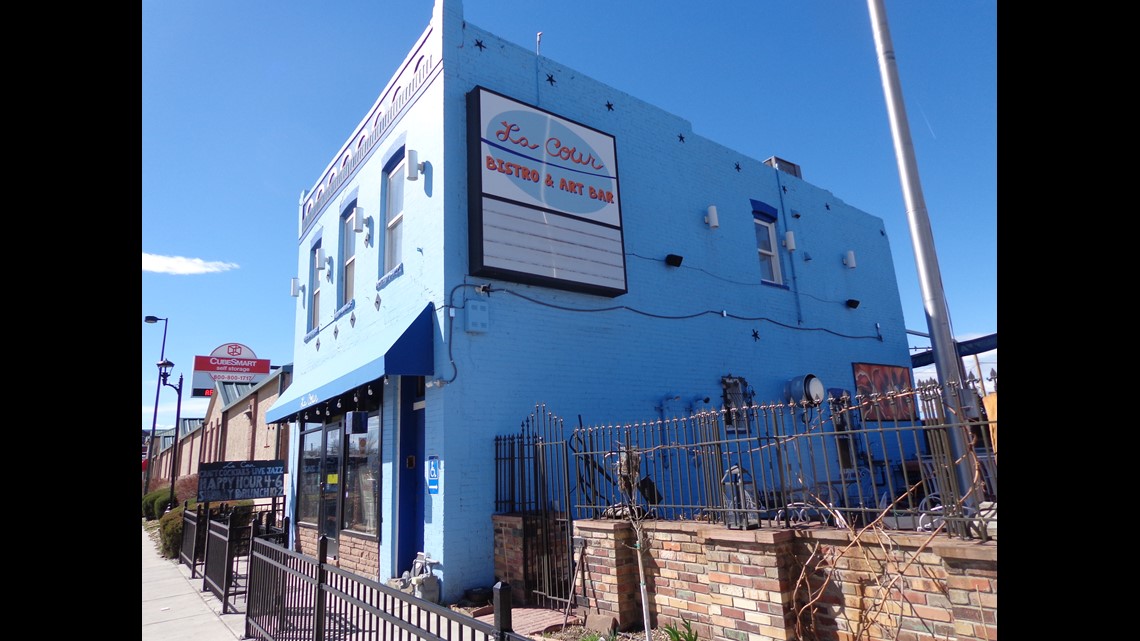
If you're looking to relax, head to The Denver Tea Room & Coffee Salon (1165 S. Broadway). It serves traditional, high-tea service with scones and finger sandwiches in an intimate setting.
A few other neighborhood favorites include GB Fish and Chips for traditional English fare, the new Session Coffee for a high-quality caffeine break and the long-standing Southwest store Old Santa Fe Pottery.
Grandoozy
This September, Overland will be home to a three-day, multi-stage music festival dubbed Grandoozy.
Grandoozy will take place September 14-16 at the Overland Park Golf Course with Kendrick Lamar, Florence + The Machine and Stevie Wonder each set to headline a night of the festival.
Other musical performers include The Chainsmokers, Logic, Sturgill Simpson, Miguel, Pheonix, Young the Giant, St. Vincent, The War on Drugs, Ty Dolla $ign, and Kelela.

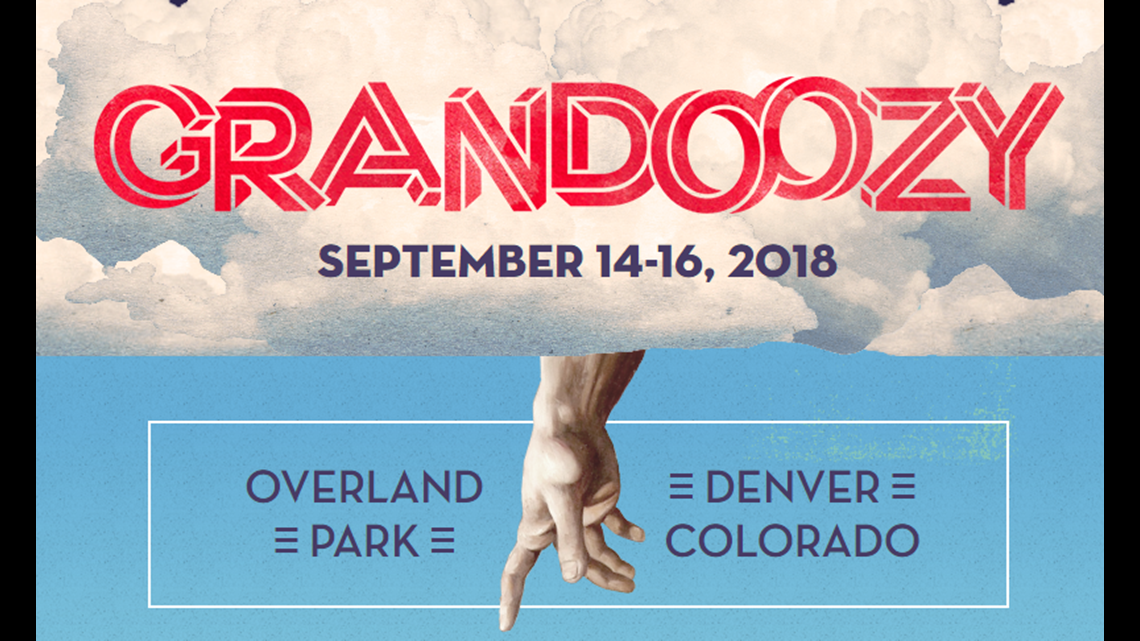
Grandoozy was created by Superfly Productions, the co-creators of Bonnaroo.
In addition to the more than 40 musical acts, organizers say the festival will provide a rich expression of Denver culture and its love of food, craft beer and spirits, and the outdoors through multiple experiences.
Denver City Council voted 10-3 to approve the major music festival in July 2017. Denver is expected to make $2.6 million off this contract with Superfly with nearly a million of that going to the Overland and Ruby Hill neighborhoods alone.
General admission and VIP tickets for the general public go on sale Friday, March 23 at 10 a.m.
Pricing starts at $224.50 for three-day general admission tickets, and $599.50 for three-day VIP tickets.


